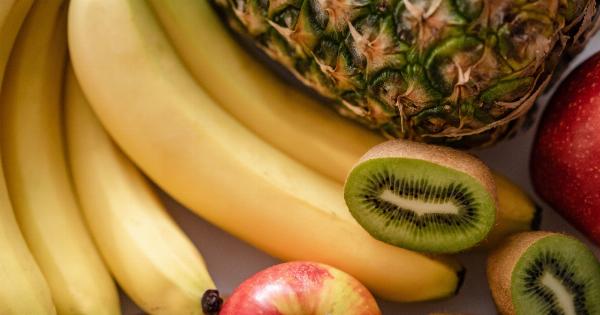Are you looking for a way to boost your overall health while also improving your relationship with food? Look no further than fasting and a vegetarian lifestyle. These two lifestyle choices can have a profound impact on your physical and mental health.
In this article, we will explore the secrets of these two lifestyles and how you can unlock their full potential.
What is Fasting?
Fasting is the practice of abstaining from food for a certain period of time. This can be done for a variety of reasons, including religious or spiritual practices, weight loss, and health benefits. There are several types of fasting, including:.
- Intermittent fasting: This involves eating only during specific times of the day or week. For example, you might eat only between noon and 8 p.m. each day, or fast for 24 hours once a week.
- Water fasting: This involves consuming only water for a specified period of time. This is typically done for one to three days, but can be done for longer periods.
- Juice fasting: This involves consuming only fruit and vegetable juices for a specified period of time. This is typically done for three to seven days.
While fasting can be challenging, it has several potential health benefits, including weight loss, improved insulin sensitivity, and reduced inflammation.
It can also promote autophagy, the process by which the body cleans out damaged cells and generates new ones.
The Benefits of a Vegetarian Lifestyle
Following a vegetarian lifestyle means consuming a diet that does not include meat or meat products. There are several types of vegetarianism, including:.
- Lacto-ovo-vegetarianism: This involves abstaining from meat, fish, and poultry, but still consuming dairy products and eggs.
- Pescatarianism: This involves abstaining from meat, but still consuming fish and seafood.
- Veganism: This involves abstaining from all animal products, including dairy and eggs.
There are several potential benefits to following a vegetarian lifestyle. For example:.
- Reduced risk of chronic diseases such as heart disease, hypertension, and type 2 diabetes
- Improved digestion and gut health
- Weight management
- Lowered risk of certain types of cancer
Combining Fasting and Vegetarianism
The good news is that fasting and a vegetarian lifestyle can be combined to provide even greater health benefits.
For example, research has found that regularly practicing intermittent fasting can increase the effectiveness of a vegetarian diet when it comes to reducing inflammation and managing weight.
Additionally, combining fasting and vegetarianism can make meal planning easier, as both lifestyles often involve focusing on vegetables, fruits, whole grains, and legumes.
How to Get Started
Before starting any major lifestyle changes, it’s important to talk to your doctor or a registered dietitian.
They can help you determine what type of fasting and vegetarianism is right for you, based on your health goals and any underlying medical conditions.
Here are some tips to help you get started:.
- Start slowly: If you’re new to fasting and/or vegetarianism, it can be overwhelming to make too many changes at once. Start by incorporating more plant-based meals into your diet, or try intermittent fasting for a short period of time.
- Be mindful of your nutrition: It’s important to make sure you’re still getting all the necessary nutrients when following a vegetarian diet. Make sure to incorporate plenty of fruits, vegetables, whole grains, and legumes.
- Stay hydrated: When fasting, it’s important to drink plenty of water to stay hydrated. Aim for at least eight glasses of water a day.
- Listen to your body: If you experience any negative side effects from fasting or vegetarianism, such as dizziness, fatigue, or headaches, take a break and talk to your doctor.
Conclusion
Fasting and a vegetarian lifestyle are two powerful tools for improving your overall health. When combined, they can have even greater benefits, including weight loss, improved insulin sensitivity, and reduced inflammation.
If you’re interested in trying these lifestyles, be sure to talk to your doctor or a registered dietitian to determine what’s right for you.






























